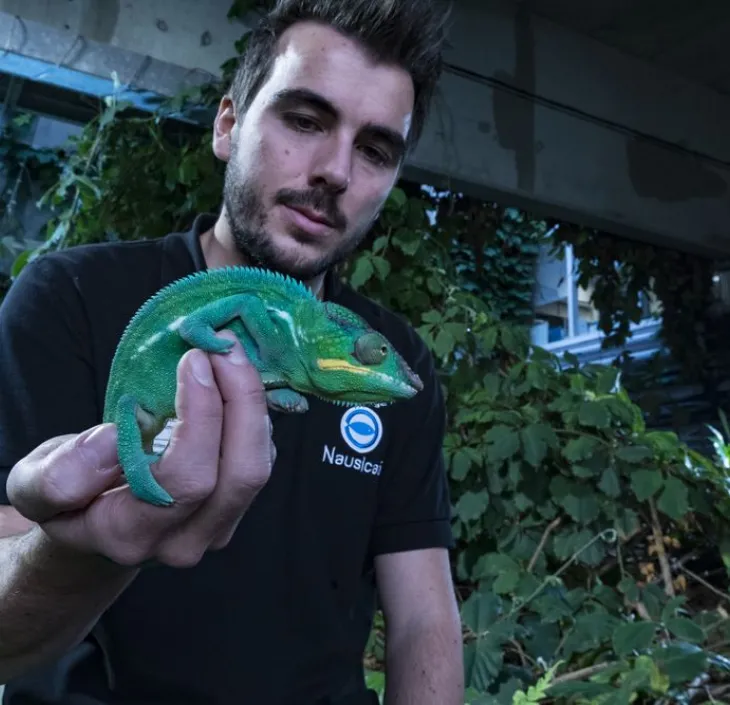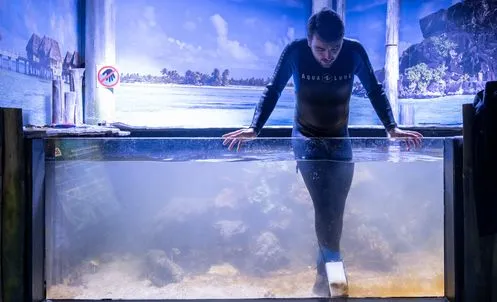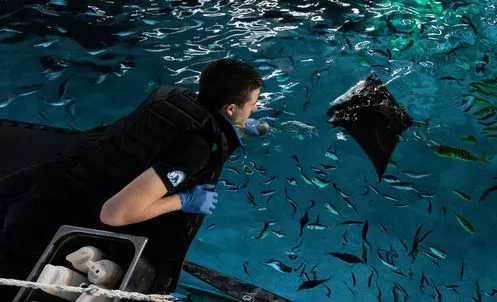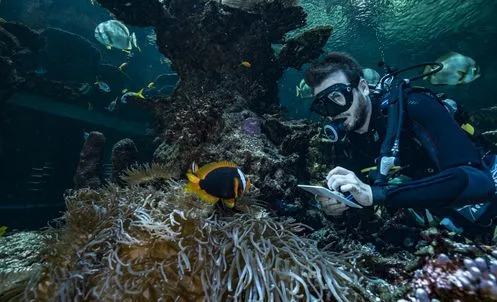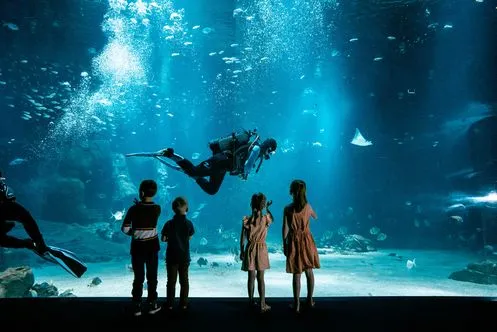There are 58,000 animals on show at Nausicaá. A team of around thirty handlers is responsible for maintaining the aquariums and terrariums and caring for the animals.
Cleaning the glazing, preparing the meals, feeding, water quality control, diving in the tanks, raising and taking cuttings are all part of the tasks that keep the aquariology teams busy every day.
